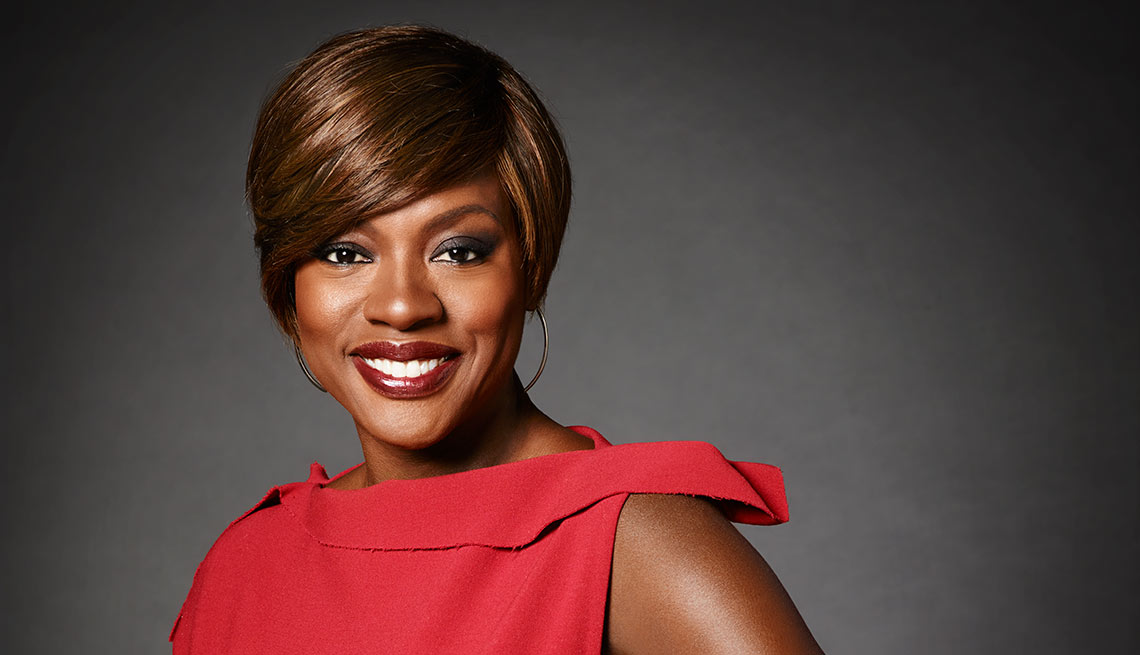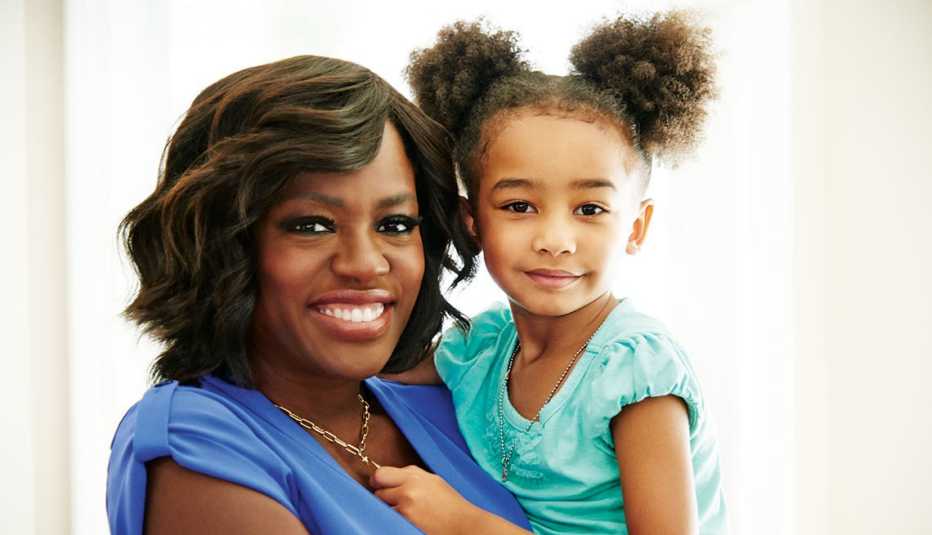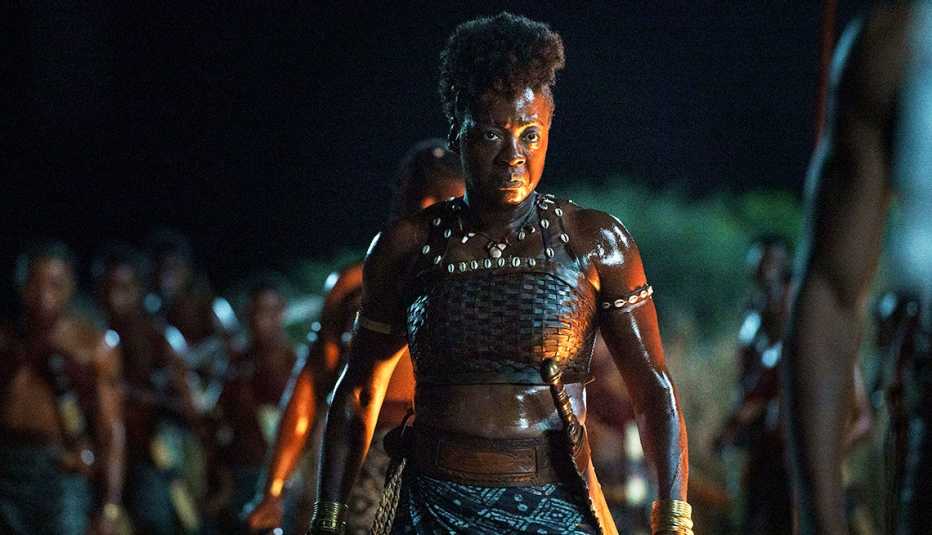AARP Hearing Center
Viola Davis opens her front door wearing a wet swimsuit, a towel wrapped around her chest. "I'm sorry — time got away from me," she says, as her slender 5-year-old daughter, Genesis, comes up behind her. Heading upstairs, Davis promises to be right down, and in just minutes she is, having showered and thrown on a long-sleeved T-shirt and shorts, still rubbing on lotion.
In How to Get Away With Murder, her hit ABC TV series, Davis plays Annalise Keating, a glamorous, tough and promiscuous criminal lawyer who wears spike heels and sleeveless dresses that reveal her toned arms. At home, in a modest (by Hollywood standards) suburban tract of Los Angeles, Davis is barefoot, gentle and relaxed. She settles Genesis at one end of the dining table with a pink toy computer. "I'm going to do this interview, and I expect you to be quiet," she tells her, softly but firmly. The room looks out on a sloping hillside of clay-colored decorative rock, into which are built fountains that cascade into a pool and Jacuzzi. This is Davis' retreat. At night, she likes to unwind out here, soaking in the hot tub beneath palm trees that twinkle with little lights that her husband installed. "There's nothing like it," she says.
She's hitting the Big 5-Oh on August 11 and still cannot believe her good fortune. "Turning 50 is making me reflect on my life in a way that's more compassionate and forgiving," she says, her voice deep, rich, inviting. "I'm able to almost accept the old me."
Her struggle for self-acceptance began when she was in kindergarten and burdened her through college. Looking at photos from that period of her life, she would say, " 'Look how fat I was,' or 'My goodness, look at my hair!' What I saw was dark skin, being poor and all the things that come with poverty — smelling and being unkempt."
What Davis sees now is "how passionate I was, how much I dreamed, and what a good and loyal friend I was."


The actress is turning 50 with a fulfilling marriage and family life, while at the zenith of her career, having earned both popular and critical acclaim. There was a time in her life when none of that seemed attainable. "Having a house!" she says. "When you grow up poor, you dream of just having a home, and a bed that's clean — that's a sanctuary. Having a really great husband, a child who's healthy and happy and brings me joy — all of that has been my dream."
Until she was 18, Davis lived with her parents, brother and four sisters in a condemned building in Central Falls, Rhode Island, a working-class town where the Davises were one of the very few African American families. Her mother had an eighth-grade education and worked sporadically in factories. Her father groomed racehorses at Narragansett Park. "But grooms don't make money," says Davis. "Definitely not enough to feed a family of eight."
The food stamps they received at the first of each month paid for a grocery run. "But the food soon ran out, and that was it," Davis explains. "Most of the time, the school lunch was the only meal I had. I would befriend kids whose mothers cooked three meals a day and go to their homes when I could." Other times, she rummaged through garbage dumps and stole food from the store, slipping items down the front of her pants — until the day she was caught.
"I was 9," she recalls. "The store owner screamed at me to get out, looking at me like I was nothing, and the shame of that forced me to stop."
In winter, the furnace broke and the pipes sometimes froze, so the family couldn't bathe; at night, they huddled together for warmth, scarves tied around their necks to ward off rat bites. Davis would arrive at school at 8, and by 8:30 she was falling asleep. "If you're hungry," she says, "you can't focus — you have no juice."








































































